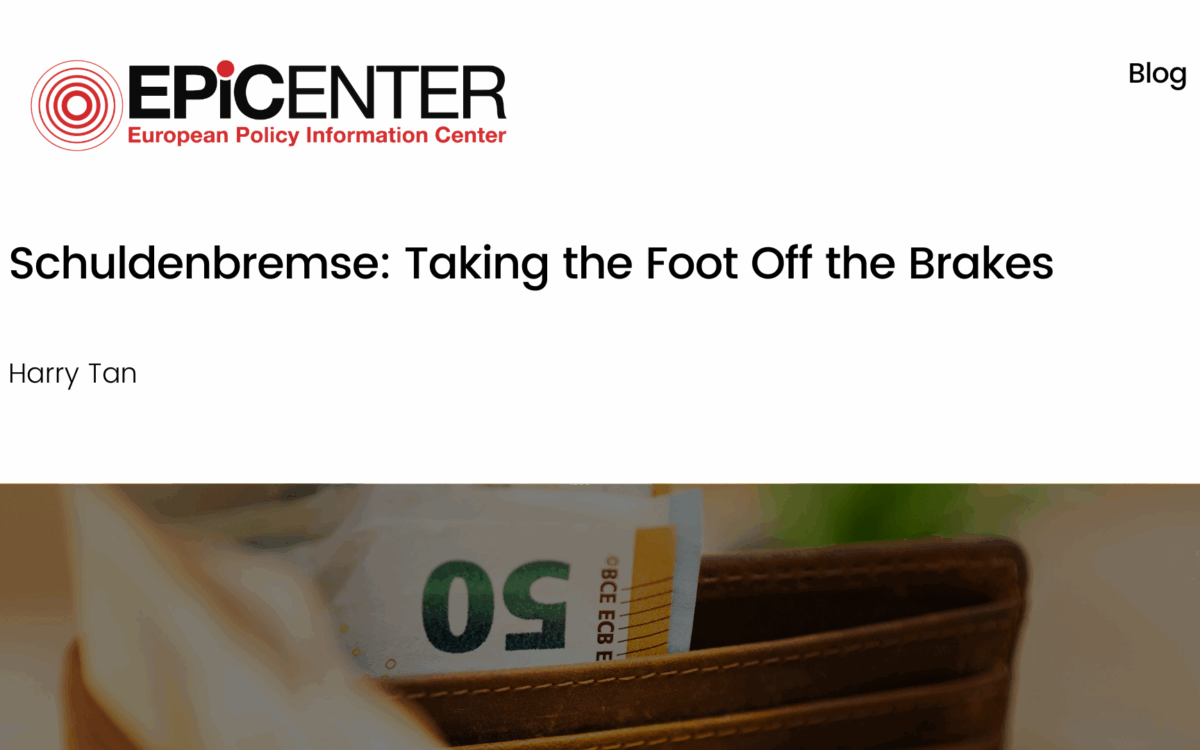Reforming Tax Policy in Europe After COVID

Reforming Tax Policy in Europe After COVID
Erik Paessler // 16 October 2020
The post-COVID world poses significant challenges for taxation policy. Our recent panel discussion with FNF was based on the recent publication of the International Tax Competitive Index which explored changes in corporate, individual income, consumption, and property taxes as well as the treatment of overseas profits. Countries such as Italy, Poland and Portugal have implemented complicated tax regimes, with multiple layers of distortionary taxes on property and banks, fostering an overall uninviting atmosphere for investment. Countries such as Estonia and Latvia however boast competitive tax rates and encouraging tax regimes for foreign businesses. The discussion aimed to explain these significant intra-European divergences and to discuss best-practices.
One of the major discussion points was the championing of efficient taxation regimes. Whilst the average tax revenue in the OECD has historically increased, the average tax rate in the OECD decreased as countries were forced to introduce a broader tax base for a more efficient tax system. The crucial concept of neutrality underlies all effective tax reforms, which was emphasized by all panellist and the report itself. Associated with tax neutrality is equality before the law, both for companies as well as individual taxpayers. The panellists appealed to policymakers to use the Index to identify where tax systems hold up well and where there is room for improvement and to translate these findings into future tax reforms.
The discussion also zeroed in on specific cases within European countries. In Poland, the overall tax burden has increased, but it still remains under the European average. However, the public debate is focused on the rates rather than on tax complexity, as the current government has introduced several new distortions to the tax system. Whilst it is principally good that Polish policy makers are looking to best-practice cases such as Estonia for tax regime models, these efforts fall flat if the taxation standards are associated with additional narrow conditions of eligibility. Across the pond, the complex tax system in the United Kingdom has been the subject of criticism.
The panellists also identified the main pressures on the tax system. One of the most salient barriers to efficient tax reform lies in the diverging priorities for government expenditure in Europe. Policy makers must also navigate the complicated nexus of different tax preferences of professional economists and the wider public eye. The discussion finished with a brief analysis of one of the main tax challenges the EU currently faces: The digital tax on technology companies. Whilst increasing the EU’s own revenue remains a political goal, the European Commission should ensure that it does not introduce new distortions into the European tax regime. It is not just national governments, but also EU institutions that should follow the principle of tax neutrality.
Seminar speakers:
Martin Agerup President, Centre for Political Studies (CEPOS), Denmark
Daniel Bunn, Vice President of Global Projects, Tax Foundation, USA
Tom Clougherty, Head of Tax, Centre for Policy Studies (CPS), UK
Aleksander Laszek, Chief Economist & Vice-President of Civil Development Forum (FOR), Poland
Elena Leontjeva, President, Lithuanian Free Market Foundation, Former Economic Advisor to the President of Lithuania
EPICENTER publications and contributions from our member think tanks are designed to promote the discussion of economic issues and the role of markets in solving economic and social problems. As with all EPICENTER publications, the views expressed here are those of the author and not EPICENTER or its member think tanks (which have no corporate view).



